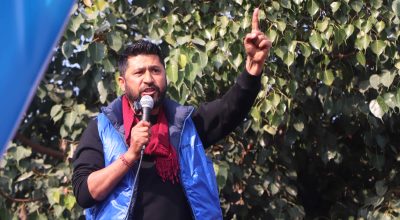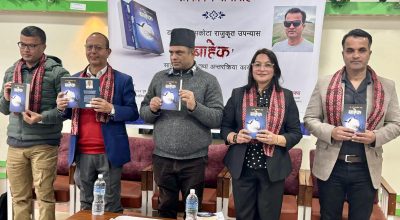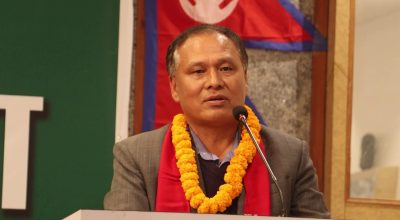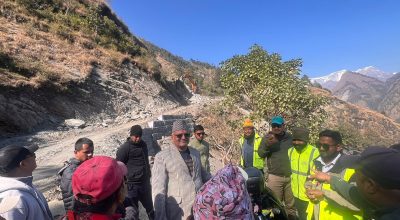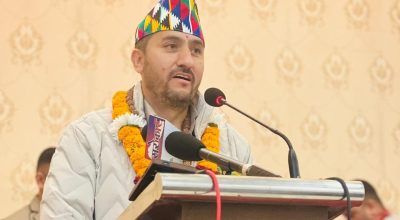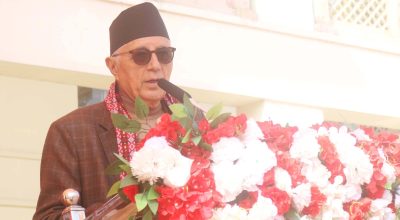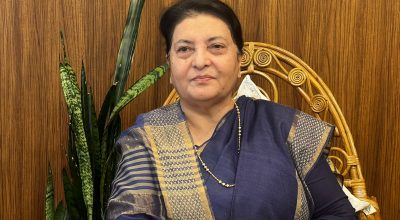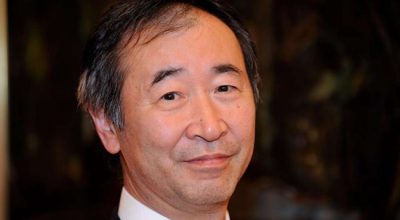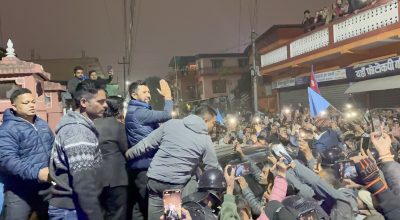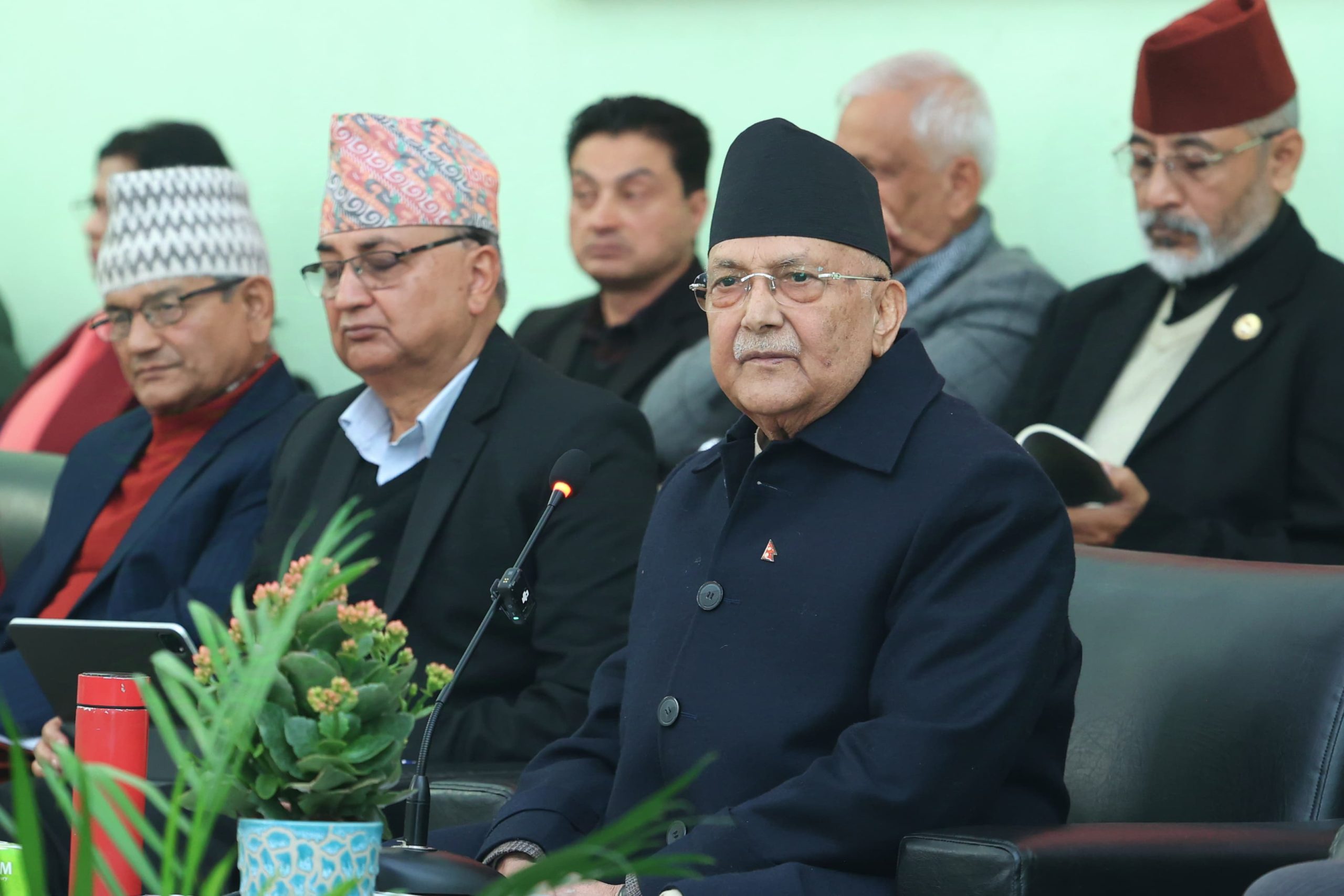
Kathmandu, Jan 5: Prime Minister and CPN UML Chairperson KP Sharma Oli claimed that there was a gradual improvement in national economy since the formation of the incumbent government.
Presenting the political report in the central committee meeting of the party at Chyasal, Lalitpur on Sunday, Chairperson Oli however admitted that the economic recovery had not yet gained a remarkable momentum.
In his report, Oli cited the notable outcomes of the incumbent government such as ensuring political stability, increased confidence in the private sector, higher revenue collection, rise in capital expenditure and import and capital market as compared to previous fiscal year.
The report mentions formation of a high-level Economic Reform Recommendation Commission for taking measures to improve national economy. According to the report, the government fulfilled payment obligation and introduced a dozen of laws, regulations, procedures, directives and legislations and enforced them o strengthen national economy.
The political report, taking pride in Nepal’s improved sovereign credit rating, boasts that Nepal stands as the second most investable country in South Asia after India.
Oli outlined government’s efforts and initiatives such as devising legal framework to address the anomalies plaguing the cooperatives sector, taking action against fraudulent cooperatives, repaying depositors’ money and forming of an Authority to regulate the cooperatives sector.
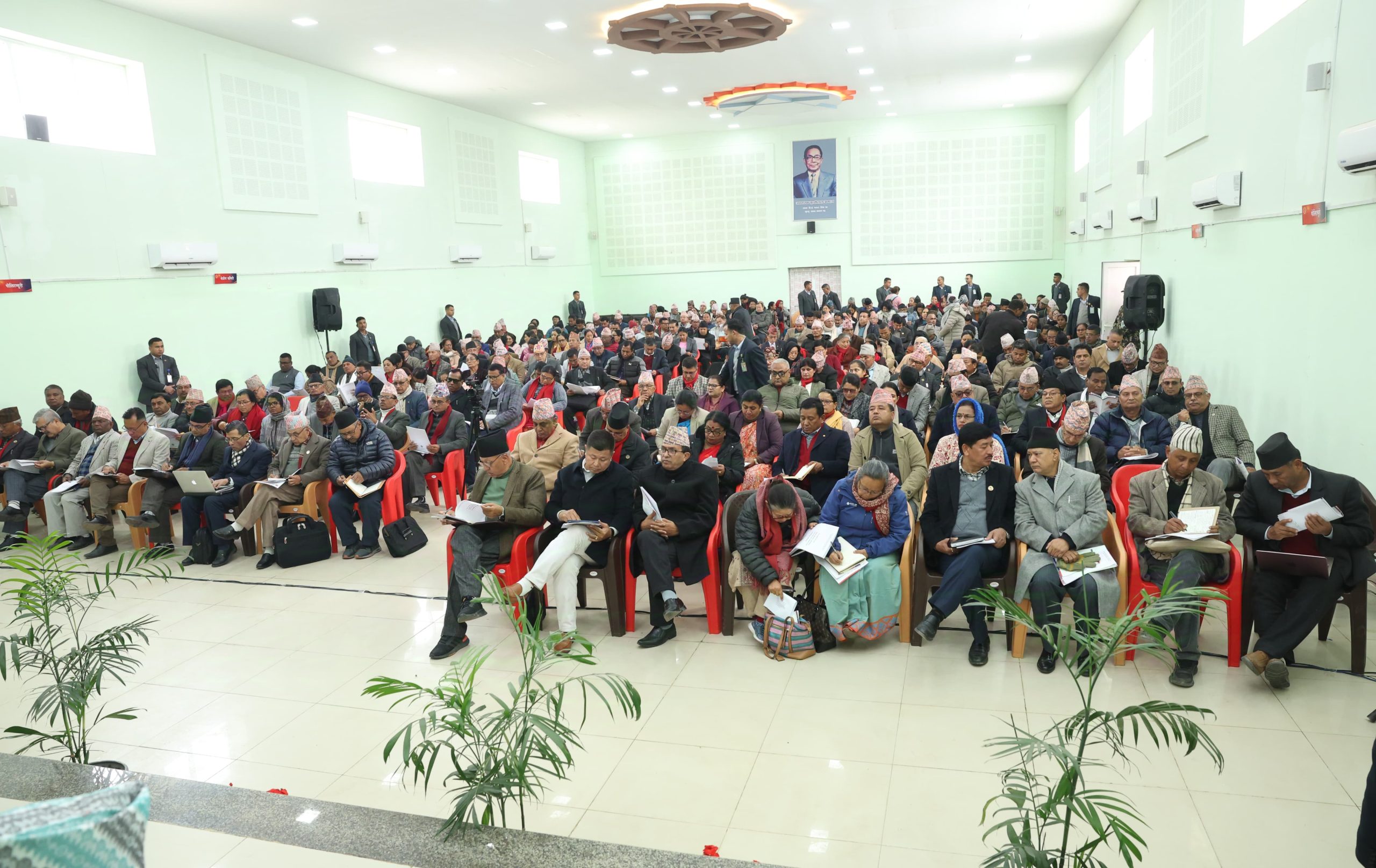
Although the report highlighted a notable improvement in energy, trade and infrastructures sectors, as well as efforts to resolve farmers’ issues and gradual improvement in public service delivery, PM Oli asserted that those sectors were not still far from challenges.
While the government’s actions were positive, the report emphasized the need for additional efforts to deliver on development and meet citizens’ expectations.
The PM has stated that the government had embraced austerity measures to implement a disciplined working system and focus on projects of national pride instead of scattering the budget on small projects.
In his report, he argued that a foundation was laid to bring vitality to the country’s economy through various initiatives taken by the government. “The external economic factors are relatively stable. Cash deposits for investment have increased in banks, remittance inflows have risen, interest rates have been lowered to single digit, and inflation is under control,” Oli said during the central committee meeting.
In his report, Oli suggested four immediate measures to address the anomalies in the cooperative sector. “Taking firm action against fraud, repaying depositors, establishing a high-powered authority to regulate cooperatives, and creating a security fund to protect depositors’ funds in the future should be top priorities,” Oli stated.
He emphasized that the government is resolute in holding accountable those responsible for embezzling cooperative funds.
Oli also mentioned that some political parties or individuals are trying to politicize ongoing investigations and prosecutions by portraying them as targeted attacks, but these allegations have been proven false through the investigation process. He stressed that individuals who have not committed any wrongdoing should not fear the judicial process.
PM Oli announced that Rs 1.55 billion was repaid to 6,000 depositors from three troubled cooperative organizations out of the 22 troubled cooperative organizations.
The Chairman has however admitted in the report that excessive liquidity and political instability were behind slow development works. He also accused the erstwhile government of creating atmosphere discouraging foreign investment, fueling corruption and embezzlement of government funds. Such malaises created a parallel economy denting formal economy of the country, he added.
“The construction entrepreneurs did not get payment on time, while development projects were foisted randomly for political interests. Several projects were scattered and without resources. Such ill practices ruined development ecosystem, which needs immediate correction,” PM Oli underlined.
Moreover, he said although present government took positive initiatives for economic reform, these were not adequate. “People are awaiting speedy development and delivery with the formation of government comprising two big parties,” he said, drawing attention that the reconstructions in Jajarkot and Rukum Paschim districts were not initiated despite passage of more than one year since the earthquake, while people suffering floods in the ultimate days of last September were also in need of rehabilitation.
According to the PM, some of the challenges at present were- farmers not ensured proper price of their products; problems of sugarcane farmers still unaddressed; development works not gaining pace; and delivery of public service slowed and investment atmosphere elusive. #uml #nepal
Full Text
8th CC Report (Political) - readable text




